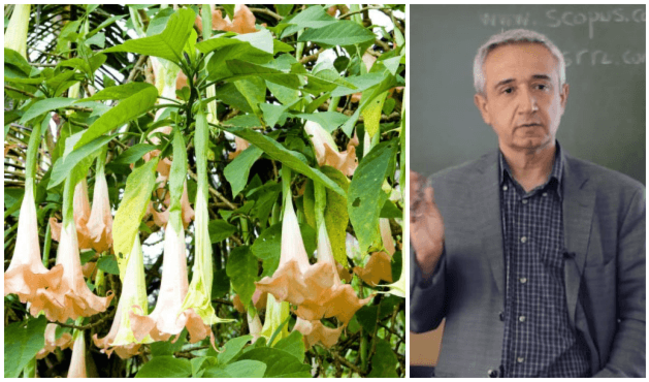
Turkish academic Prof. Dr. Ramazan Gencay, who had been missing in the Colombian city of Medellin since Dec. 6, has been found dead.
The Colombian Forensic Medicine Institute on Dec. 28 said a body found on Dec. 24 on a riverside on the outskirts of Medellin city belonged to the professor.
The professor’s death was also announced by his wife Carole Gencay on her social media account.
According to local reports based on forensic and police sources, Gencay was suspected to be given a drink or food containing scopolamine, a drug which renders a person incapable of exercising free-will and is widely used by thieves in Colombia.
Scopolamine, which is also known as "devil’s breath" or burandanga, derived from nightshade plants, and has been described as “the most dangerous drug in the world”.
Gencay traveled to Colombia on Nov. 28 to attend several seminars at the Center for Research in Economics and Finance of the EAFIT University in Medellin.
The last time he was captured on CCTV footage was on Dec. 6 at around 10:30 p.m. with a group of unidentified people at a salsa club in Medellin. His personal belongings and passport were found in his hotel room but was reported that his credit card was used on Dec. 7-8.
His wife had shared a Facebook post expressing that he was without his medication.
Global Affairs Canada had confirmed that the federal government was aware of the disappearance of the Turkish professor and that they were in touch with Colombian officials.
Canadian citizen Gencay was an economics professor at Simon Fraser University. His books have been cited 2,213 times. In 2000, he had won the Young Scientist Award of Turkish Academy of Sciences.
Man kills wife after she refuses to dance in Turkey’s southeast
